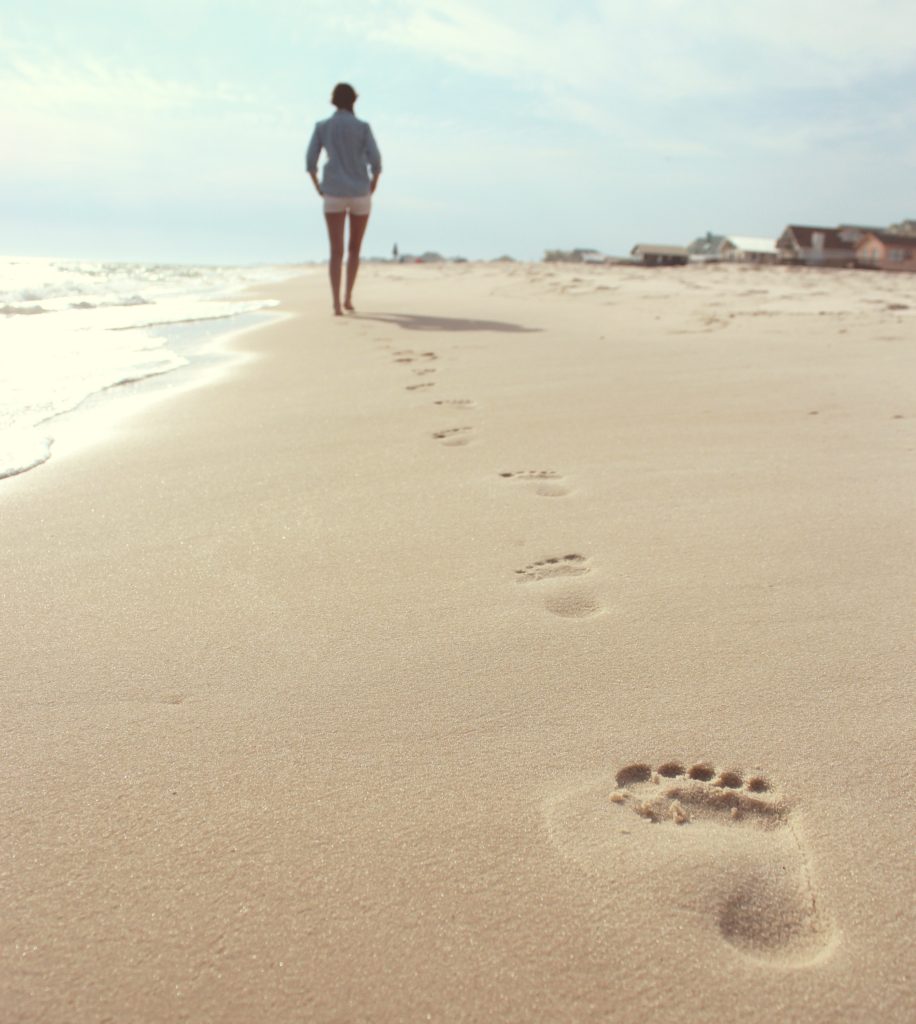If we rely only on backpackers and ecotourists to save the planet, we won’t have much of a planet left soon. It’s time to mainstream sustainability. It’s time that people take active steps to make their typical vacations more sustainable.
There are many great ideas out there for traveling more sustainably. Obviously we think that the new BeachCorps approach on “voluntourism” is the best way to promote all kinds of sustainability to protect and strengthen: local economies, social services like health and education, local culture, and animals, wildlife and the environment.
But if you want some great additional ideas, here is our Top Ten List from before the start to after the finish of your trip.
1. Before Leaving, Book Travel and Lodging that Promote Sustainability: Our friends over at Greenglobaltravel.com encourage travelers to check to see if the hotel has LEED Certification from the U.S. Green Building Council. Other certification programs include EarthCheck(Australia), Rainforest Alliance (Latin America, Caribbean), and Green Tourism Business Scheme (UK). Before booking a hotel, look into the hotel’s sustainability initiatives, such as solar power, wind turbines, rainwater harvesting, energy-efficient lighting, and low-flow toilets. At BeachCorps, we have developed our own #SustainabilityPledge list of lodging that promotes sustainability—and you will receive a discount on the BeachCorps fee for staying in a more sustainable hotel. The hotels on our list will have either Green Globe or Travel Life Sustainability Certification or will otherwise show a strong commitment to sustainability by supporting projects that give back to the community. We also include some local home and apartment rental opportunities for businesses that are giving back in the local community. All lodging will be located in the area of your volunteer activity (to reduce carbon emissions in transport). As for areas outside of lodging, what about your airline? Are they promoting sustainability? How about Virgin Atlantic’s Lanzatech sustainable jet fuel initiative. According to a Virgin Atlantic press release, this fuel could potentially emit over 70 percent lower carbon emissions than traditional “fossil jet” sources. Since LanzaTech recycles gases from industrial sites, the supply stream is abundant and affordable and it also requires less land, because Virgin Atlantic is using preexisting mills rather than hunting for fossil fuels.
2. Learn About, Promote and Empower Local People and Culture—and Then Meet the Locals: Educate yourself about the place you are visiting and the people so you can better engage and avoid cultural gaffes. Do not give pens, candy or other gifts to local children – it fosters a begging economy. If you wish to donate, consider making a financial donation to a worthy cause that will use the funds wisely and will get the credit as a local organization, which is better than the “savior” being a foreigner. If you want to donate school supplies or used clothing, consider giving your donation to a worthy cause directly rather than giving it directly to poor people. If you are coming to Punta Cana, consider using our Dynamic Donor program run by our partner FECOTUR that uses donations to support a worthy local nonprofit to promote education and recycling efforts for locals who are giving back in their communities. Do not support the illegal drug trade or the sex trade. Consider going to a local religious service, faith-based event or ceremony since faith-based development has important benefits when done right! You can even go to an event that isn’t connected to your faith to reach out to locals. Most important: get out of your hotel and meet the locals!
3. Bring Your Own Recyclables: Bringing your own BPA free water bottle can help cut back on unnecessary plastic waste during your travels. It is always nice to have a reusable tote bag rolled up in your backpack while traveling. You’ll never know when you’ll need it, and you can wash and reuse it if necessary. You’ll be surprised how often you use it, especially when traveling to hot climates. One AMAZING program for reusing bottles is run by Trash Hero, which provides high quality stainless steel water bottles to local businesses at cost price. Local businesses can then sell those bottles to customers with a small profit, and in return they agree to provide anyone with a Trash Hero water bottle, no matter where it was purchased, with free drinking water refills. BeachCorps hopes to help set up a program with Trash Hero, or inspired by Trash Hero, in the Dominican Republic!
4. JUST SAY NO TO PLASTIC: Yes, we really hate plastic so we are repeating ourselves. Besides preparing to avoid using plastic, find ways to minimize the use of plastic when you get to the hotel. The Great Pacific Garbage Patch, a swirling mass of human trash stretching across thousands of miles of the ocean, includes gazillions of throw-away plastic bottles and bags that will take hundreds of years, if ever, to break down—all the while wreaking havoc on marine ecosystems. What about plastic drink straws? The Last Plastic Straw and Plastic Pollution Coalition are building momentum around a worldwide movement, so plastic straws become a relic of the past. How about a nice coconut to help yourself hydrate? You can always bring a reusable straw for that! “Going Coconut” will also reduce your carbon footprint since petroleum-based ingredients are the key part of manufacturing plastic bottles and bags. Clean the World is an amazing nonprofit that works with partners in the hospitality industry to recycle soaps and shampoos and provide life-saving soap to poor communities. BeachCorps would LOVE to work with Clean the World in the Dominican Republic! Trying bringing along a bar of shampoo soap instead of using the 552 million shampoo bottles we throw out annually. Or you can buy a 4Ocean bracelet! Every bracelet made from recycled materials purchased funds the removal of 1 pound of trash from the ocean and coastlines. In less than 2 years, 4Ocean has removed 629,942 pounds of trash from the ocean and coastlines. For more information on creating less waste while traveling check out Trash is for Tossers blog post or this great post on the 5R’s by Earth Changers.
5. Help Save Water In Your Hotel: Water is a precious commodity near the beach, even if it gushes out of your sink. Overuse of water in many tourism destinations has seriously damaged the aquifers, allowing contaminated water to enter the ground. So will you may not feel the effects in your hotel, locals feel the effects in less water and dirtier water. Take short showers, not long baths. Showers use just 10-25 gallons of water, while baths use up to 70 gallons. Turn water off while you lather up, shave, and/or brush your teeth. Never use hotel laundry, as they typically wash every guest’s clothes separately (even when there are only a few items). Hang towels after each use—that’s the sign all around the world that you’d like to use them again.
6. Try Plogging on Your Beach: Have you heard about Plogging? It’s a new trend of organized and unorganized running while picking up trash. It’s even better if you do it with a local group of runners! Why not reach out to a local runners group like the Hash House Harriers and propose a local Plogging run? Tell them you will donate to a great local cause if the local runners can set up a Plogging event. Who knows, you might start a trend!
7. Visit Local Markets and Support Local Businesses and Craftsmen. Too much of tourism revenue coming into many developing countries then immediately leave and don’t benefit local economies. We love getting safely off the beaten path and seeing more than the local tourist traps! So get beyond the tourist driven markets and gift shops. When you are exploring areas off the beaten path you can discover amazing shops and markets and really understand the local culture better. This is a great way to support local artisans. When buying from these artists you are supporting their craft and preserving their culture. Plus, these things are always better and less expensive than the typical souvenirs found in the airport. Consider supporting some amazing nonprofits that empower local communities through micro-enterprise. Serrv is a nonprofit, fair trade organization dedicated to lifting disadvantaged artisans, farmers, and their families out of poverty. The Batey Rehab Project is one of our Sustainability Pledge nonprofits and has a wonderful project that sells ethically crafted Larimar jewelry made by girls and women at risk for sexual trafficking and domestic violence. Onwards is a volunteer vacation nonprofit seeking to eliminate poverty through micro-enterprise and small business development and travel.
8. Protect Local Animals and Wildlife. Always protect local animals and wildlife while on vacation. Avoid exhibits like dolphin rides or anywhere that an animal is forced to live outside of its native element in captivity for entertainment purposes. Never buy stuff made with wildlife; if you buy stuff from those piles of dried up, dead sea life that they sell on the beaches, you are encouraging more needless and unsustainable destruction of sea life. Did you know that starfish feel pain and suffer a terrible, slow death when removed from the water? Eat sustainable seafood and find out if local fishermen work to promote sustainable harvesting. Here’s all the information you can find on sustainable seafood from Ocean Wise. NEVER eating parrot fish, which are key to the sustainability of beaches and coral reefs. But whenever you can, DO eat Lion Fish in the Caribbean, which is an invasive species that is destroying other fish, including parrot fish.
9. Talk to Your Hotel. Before you go home, if your hotel is doing all the right things, tell them! If they are not doing the right things, tell them! Fill out customer surveys and focus on sustainability. Go to the manager and encourage your hotel to make simple changes like like not using plastic straws. Ask if the hotel has a recycling program. If not, encourage them to start one. Encourage them to buy local and organic food. Ask if they source food and supplies and even furniture locally! If not, ask “Why not?”
10. After: Post Comments and Photos Online, including Social Media: After you return home there is more you can do. The travel industry is increasingly aware of the power of genuine user content, positive or negative. Post comments on Trip Advisor praising your hotel on their sustainability efforts or encouraging them to do better. Post photos on your social media that highlight the best and the worst. Of course, if you travel to the Dominican Republic, you can join our #SustainabilityPledge Photo Contest where each month the winning photo with the most likes gets to choose a great nonprofit from our list to receive a $100 prize! You can even suggest a great nonprofit to add to our list.
Thanks for some of these tips from Green Globe Travel and National Geographic.
(Photo: @Zackography)
#BeachCorps #ALittleGrainofSand #Sustainability #SustainableTravel #DominicanRepublic #Voluntourism #VolunteerVacation #ClimateChange #PlasticRecycling #Recycling

